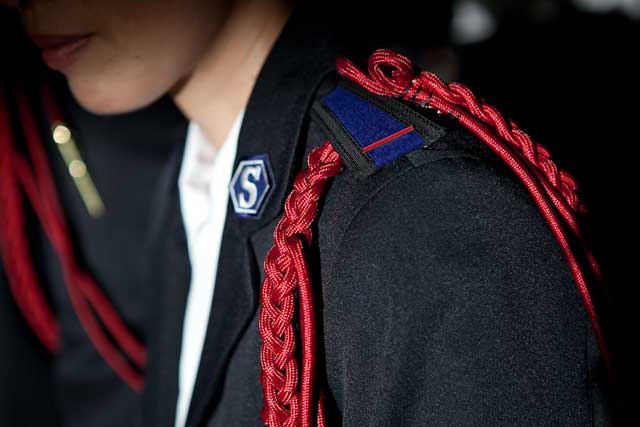by Ted Horwood, Captain –
 Several weeks ago I was browsing through one of the most important pieces of literature in Army history, In Darkest England and the Way Out. In the first print edition, and on the final pages of his book, General William Booth provides opportunities for giving. It was uniquely Army and uniquely Booth.
Several weeks ago I was browsing through one of the most important pieces of literature in Army history, In Darkest England and the Way Out. In the first print edition, and on the final pages of his book, General William Booth provides opportunities for giving. It was uniquely Army and uniquely Booth.
Not unlike today, if one contributed to the Army in 1890, one would need to specify where the donation should be channeled. What was listed in the book was a curious series of “funds”—some rather predictable, and some very insightful.
For example, contributions could be made to:
General Maintenance Fund
International Training Home Fund
Sick & Wounded Fund—for officers who break down through disease, injury or overwork
The Slum Fund—to meet the expense connected with the establishment and maintenance of various slum posts with the lowest and poorest neighborhoods in London and other cities
The Food & Shelter Fund
But the notation that captured my attention was the final postscript:
Cheques and Postal Orders should in all cases be made payable to William Booth
As I read those pages, I began to consider our modern-day appeal commonly called “World Services Appeal.” That final notation about the “cheques and postal orders” resonated with some sentiments I have sensed in the 12 months I have been back in the territory.
This is the time of year when the West holds its World Services ingathering meetings. It is understood that funds collected will be used for the furthering of the Army’s ministry around the world. I have sensed an apprehension around the territory, however, by some soldiers regarding their giving. It seems to relate to a perceived lack of transparency—as if soldiers are once again being asked to make their checks payable to Linda Bond, or John Larrson. But there can be nothing further from the truth.
One hundred percent of the funds raised by World Services goes towards the direct support of Grant Aided Territories (specifically those assigned to us in the Partners in Mission Scheme), the funding of projects throughout the world—again with particular attention to our Partners—and support of the operation of IHQ and officers serving around the world, especially our own serving abroad.
In an effort to avert our healthy skepticism of the “system,” the Western Territory has embarked on several initiatives focused on bridging the gap between cursory giving and Great Commission giving. Making the system known to people and facilitating access to the very people and programs that receive our World Services contributions have been the central focus over the last year. Modifications to the lay missions program, coordination of missions teams, a website to focus on publicizing activities and objectives, and an increase in the amount of literature available have all been attempts to allow people to connect with the ministries they are supporting throughout the world.
A short time ago I was in South Africa, one of our partner territories. The enthusiastic gratitude of the soldiers and officers made me proud to be from the Western Territory. Although we are not the only territory that supports them, they were very aware that they have brothers and sisters in the West praying and contributing to the vital work going on in that country. Another partner is the Republic of Congo. In that war-torn country, the government is giving schools and hospitals to the Army to operate because they know that there is no better way for the people to be assisted. Consequently, thousands are being reached with the Gospel.
We have such a wonderful opportunity to be vitally connected to the movement of God throughout the world. I have sat in on many morning prayer meetings in territories around the world where the soldiers and officers were specifically praying for our World Services appeal, because they know what the implications are for their ministries.
Being uniquely Army means being Great Commission Christians—Christians with a burden for the lost across the street and across the seas; Christians sowing bountifully, believing God for the bountiful harvest…and Christians praying heartily for the nations.











